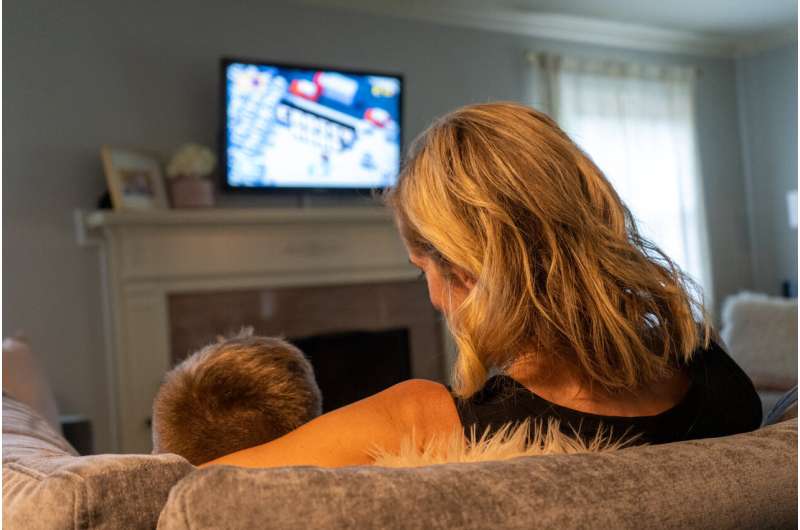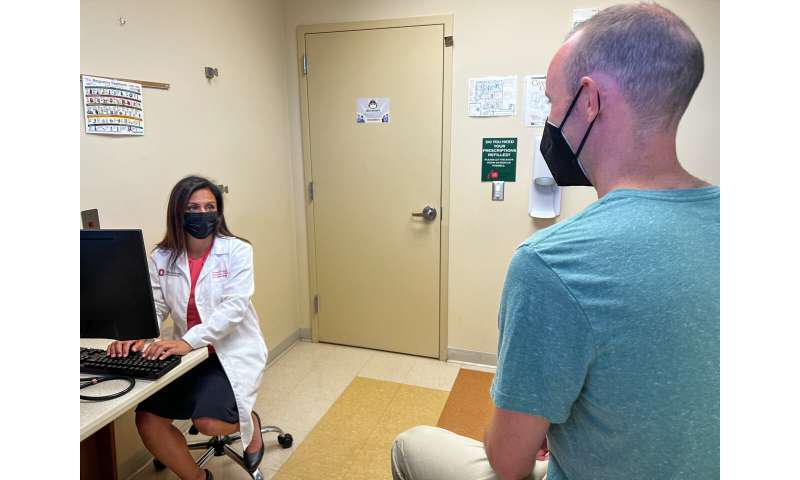
A new national survey by The Ohio State University Wexner Medical Center finds many Americans are losing sleep over stress and worry about the current state of the world. After a global pandemic, polarizing political division and more than two years of turbulent events, nearly one in five survey respondents report struggling to fall asleep at night.
“Here at Ohio State Wexner Medical Center, there was a 29% increase in referrals for insomnia from 2018 to 2021,” said Dr. Aneesa Das, professor of internal medicine. “Stress can increase your heart rate, increase your blood pressure, make you have an upset stomach and cause muscle tension. All of those things increase our alertness, making it harder to fall asleep.”
The survey also found many Americans try to mitigate sleep issues by using habits that may be detrimental to a good night’s sleep. Nearly half of Americans say they scroll their phones right before bed and 37% fall asleep with the TV on.
“Our circadian drive is that central clock telling us when we’re supposed to be awake and asleep, and that is driven by light more than anything,” said Das. “When we use our smartphones and our TVs right before bed, we increase that bright light exposure at the wrong time.”
https://youtube.com/watch?v=DTK7gPURbo8%3Fcolor%3Dwhite
Instead, Das suggests increasing natural light exposure by getting outside during the day as much as possible. Once the sun sets, limiting light exposure is essential to obtaining better sleep. Also, consistent exercise during the week is key to helping your body get on an optimal sleep routine.
Other simple behavioral adjustments that can help improve sleep patterns include:
- Keeping your bedroom cool, dark and quiet
- Spending time in bed only when it is time to sleep
- Using cognitive behavioral therapies like meditation and muscle relaxation
- Keeping bedtimes and wake times consistent, even on the weekends

Source: Read Full Article